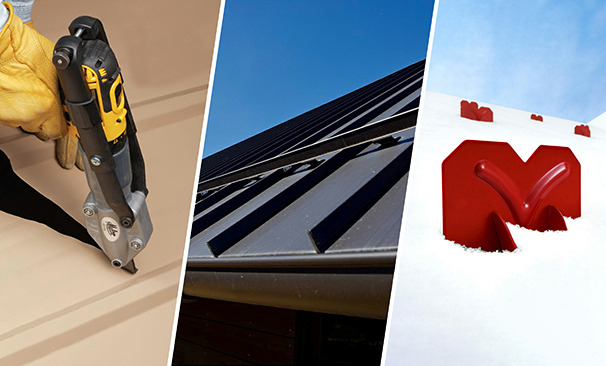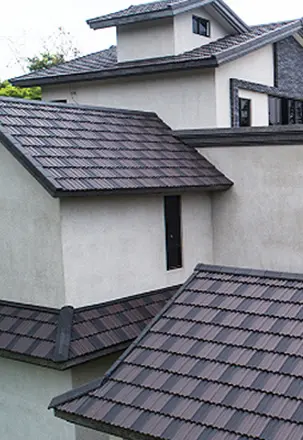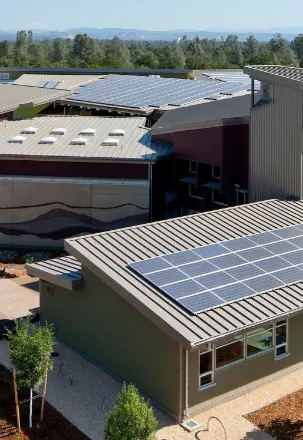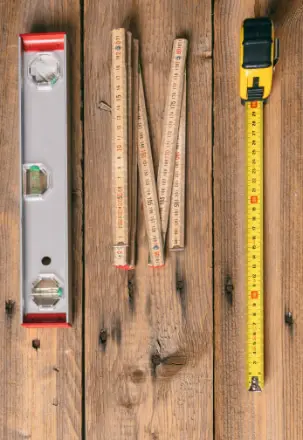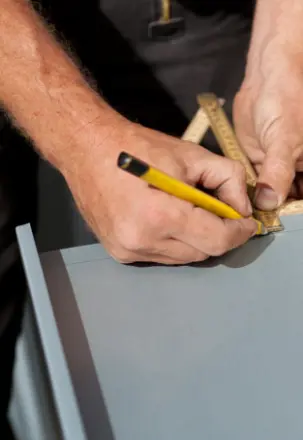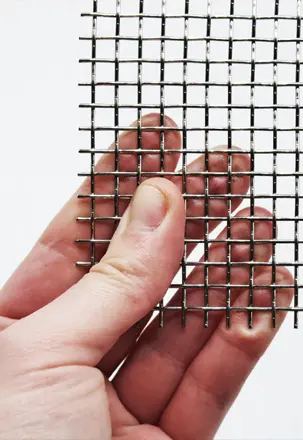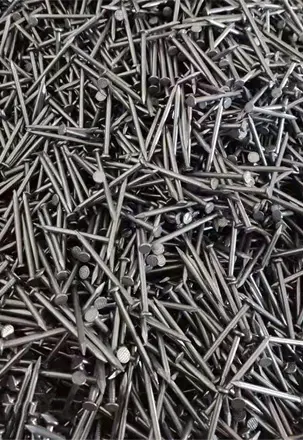As the global push for sustainable energy continues, solar roofing tiles have emerged as a game-changing solution that seamlessly blends aesthetics with renewable energy generation. Unlike traditional bulky solar panels, solar tiles integrate directly into a building’s roof, offering a cleaner appearance and long-term energy savings. However, the success of any solar roofing installation depends heavily on selecting the right supplier.
For contractors, architects, real estate developers, and international importers, choosing a reliable and experienced solar roofing tiles supplier is crucial. In this article, we’ll explore the key factors to consider when selecting a solar tile supplier, industry certifications to look for, common pitfalls to avoid, and tips for building long-term supplier partnerships.
Understanding the Importance of the Right Supplier
Solar roofing tiles are not just a building material—they are an energy-generating technology. A poor supplier can result in:
- Lower energy efficiency
- Faster degradation of tile surface or PV layers
- Complications with local building codes and certifications
- Delays in project timelines
Choosing the right supplier ensures that your solar roof investment yields maximum ROI over the long term. Especially for B2B clients handling multiple commercial projects, working with a reliable, consistent, and communicative supplier is essential for smooth operations.

Evaluate Product Quality and Certifications
Product quality is the foundation of any solar project. A good supplier will provide clear documentation and proof of:
- IEC 61215 and IEC 61730 Certifications for PV modules
- CE Certification for compliance in European markets
- UL Certification for U.S. markets
- ISO 9001 and ISO 14001 for quality and environmental management
- Fire safety ratings (e.g., Class A Fire Rating)
Ask for third-party test reports, not just internal documents. Review durability, weather resistance, and power generation efficiency under different conditions.
Also, request samples to physically inspect:
- Surface finish (matte, gloss, color consistency)
- Integration design (whether the tiles snap or interlock smoothly)
- Material strength (ceramic, tempered glass, or composite base)
Technology and Product Features
Not all solar tiles are created equal. Evaluate whether the supplier’s tiles use monocrystalline or polycrystalline solar cells, and their:
- Conversion efficiency (usually 17%–22%)
- Power output per square meter
- Integrated microinverter or junction box
- Ventilation and waterproofing design
- Compatibility with existing roof systems
Also, consider:
- Smart monitoring features via app or software
- Compatibility with battery storage systems
- Aesthetics: Does it match slate, clay, or modern tiles?
- Optional features: snow load, hail resistance, walkability
Suppliers with in-house R&D or partnerships with solar technology brands usually offer better product innovation.
Production Capacity and Delivery Timelines
For international clients and large projects, supply chain reliability is crucial. Ask questions like:
- What is your monthly production capacity?
- What’s the lead time for orders of 500 sqm, 1000 sqm, etc.?
- Do you have ready stock or on-demand manufacturing?
- Can you handle peak season orders without delay?
A good supplier should offer transparent scheduling and provide a realistic production calendar. Delays in delivery can affect project deadlines and client satisfaction.
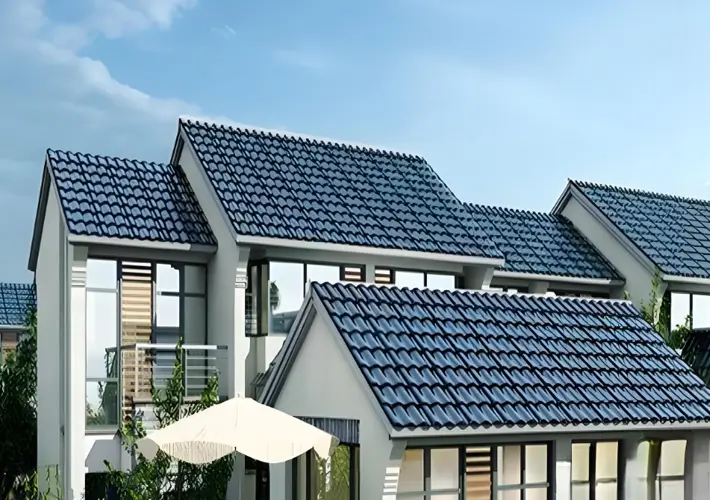
Customization and Engineering Support
Every project is unique. Your supplier should be able to support:
- Custom tile sizes, colors, or finishes
- Design consultation for roof layouts
- CAD drawings and technical documentation
- Structural load analysis
- Assistance with system integration, especially with off-grid or hybrid solar setups
This is especially important for architects and project planners working on high-end residential or commercial projects.
Global Export Experience and Compliance
For international B2B clients, choose suppliers with proven export experience. Ask:
- How many countries have you exported to?
- Are you familiar with local regulations (e.g., TUV, BIS, UL)?
- Can you provide support for customs clearance?
- Do you offer DDP, FOB, CIF, or EXW terms?
Experienced exporters also understand packaging for long-distance shipment and can provide:
- Wooden crate packaging or shock-proof pallets
- Waterproof wrapping
- Barcode and label customization for easy warehouse identification
After-Sales Service and Warranty Terms
A quality solar roofing supplier stands by their product. Look for:
- Performance warranty (e.g., 80% efficiency for 25 years)
- Product/material warranty (e.g., 10–15 years against defects)
- Installation guides and technical videos
- Responsive support team for technical inquiries
- Spare parts availability (junction boxes, inverters, etc.)
Check if the warranty is transferable (important for property resale) and whether warranty claims are handled locally or must be shipped back.
Pricing Structure and Payment Terms
While pricing is important, value for money is more critical in the long term.
Compare quotes based on:
- Price per watt vs. price per square meter
- Warranty length included in the price
- Accessories included (mounting, inverters, cables)
- Minimum order quantity (MOQ)
- Payment terms (30% deposit, 70% before shipping, L/C, etc.)
- Volume discounts or long-term pricing agreements
Be cautious of suppliers offering significantly lower prices, as they may compromise on material quality or certifications.
Case Studies and Customer Testimonials
Reputable suppliers should offer:
- Project case studies with photos, timelines, and installation details
- Client testimonials, ideally with contact references
- Videos of production, packaging, and shipment
- Site visit or live video inspection options
If possible, speak directly with one or two previous clients to understand their real experience—both good and bad.
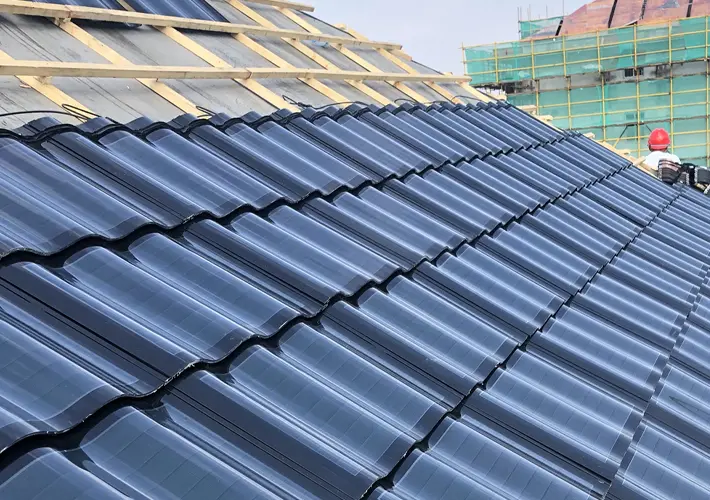
Red Flags to Avoid in a Supplier
Beware of suppliers who:
- Refuse to provide certifications or samples
- Have poor communication or vague answers
- Offer unclear or changing pricing
- Have no track record of export or customer service
- Push high MOQs without flexibility
- Don’t allow third-party factory audits
Also, avoid “trading companies” pretending to be manufacturers. Always verify:
- Business license
- Factory photos or audit reports
- Real-time video call from the factory floor
Building Long-Term Supplier Partnerships
Once you find a reliable supplier, consider building a strategic partnership:
- Sign annual contracts for better pricing
- Collaborate on joint product development
- Receive priority production slots during peak seasons
- Get access to new technologies or products early
- Co-brand or white-label options for your market
This approach builds mutual trust, improves supply chain stability, and allows for better long-term business planning.
Conclusion
Choosing the right solar roofing tiles supplier is not a one-size-fits-all decision—it requires thorough evaluation, direct communication, and long-term vision. Whether you are a project manager in Europe, a distributor in Southeast Asia, or a builder in North America, your choice of supplier will significantly impact your project’s outcome and profitability.
By focusing on product quality, technological innovation, certifications, production capabilities, and long-term support, you’ll ensure that your solar roofing investment is not only sustainable but also successful.
If you’re looking for a professional Chinese factory specializing in solar roofing tiles with strong export capabilities and B2B support, don’t hesitate to reach out. A good supplier is more than a vendor—they’re your energy partner for the future.


